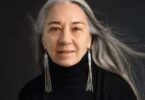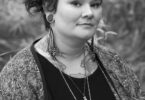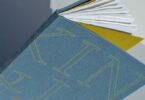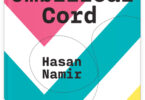Bo Luengsuraswat
© 2006
Interview by Dorothy June Fraser
Occidental Paradise is an experimental film that questions constructions of racialized and gendered lived experience. An early work of interdisciplinary artist Bo Luengsuraswat, this film pulls pop cultural references into the entanglement of images and media representations that govern constructed identity, misrecognition and continuing Orientalism in Euro-American society.
The presentation of the fetishized, Thai female body for Euro-American consumption also brings the rapid expansion of globalized sex trafficking economies to the surface of perception in this short video. There is a highly individual specialization of moments in this work–almost as if Luengsuraswat is weighing each episode of characterization that results in the misrecognition of his identity.
I caught up with the artist via email and we corresponded about this early video work, current interests and the artistic pursuit of progressive expressions, community building and evolving identity.
What brought you to film as a medium?
I had always wanted to explore time-based mediums and experiment with the limits of representation. I was drawn to film because it offered a powerful space to re-narrate experiences, to challenge the way we understand things, to create alternative possibilities of being and belonging. Given the popularity and influence of film and moving images, I was hoping to produce counternarratives to what is immediately available in our culture for consumption. As in other artistic mediums like visual art, written word, and performance, I wanted to intervene in our practices of recognition and build community through film.
Does this work provide any insight into your lived experience at the time? Is this work part of a process of self-transformation?
Growing up in Bangkok in the 1990s, I was always fascinated by the effects of globalization on local residents and how the Thai cultural identity was constantly shaped through outside forces. I relocated to North America in the early 2000s, and since then I’d been observing my interactions with people—how they read me, how they reacted upon the disclosure of my cultural identity, and how racialization and gendering worked. At the time, only a decade ago, a small handful of people I encountered could distinguish between Thailand and Taiwan, and those who had heard of Thailand knew nothing beyond the red-light districts. Strikingly, a few years later, everybody became obsessed with Thai food and all they talked to me about was how good Thai food was. Thailand all of a sudden suspiciously appeared as a paradise on the global tourist map. Having witnessed this transformation in the image of Thailand over the past decade, I was intent on exploring the discrepancies between popular representations of Thailand and my actual lived experience across various creative and theoretical platforms (i.e., my creative nonfiction work, “Proximity and the Shifting Contours of Belonging,” is forthcoming in Troubling the Line: Trans and Genderqueer Poetry and Poetics).
Most importantly, Occidental Paradise delves into the experiences of misrecognition. Using my body as a medium, I performed the discrepancies between lived reality and representation—how the popular images/stereotypes of Thailand shaped the way I was recognized and treated. Being identified as a “Thai woman” had caused me to feel alienated from my body on many levels. As a person of Chinese descent, I had already been an outsider to Thai culture to a certain degree, and it was quite painful to be repeatedly asked to speak on behalf of, or represent, a nation/culture I did not feel I belonged. Moreover, being socialized as female and labeled as “woman” had been a source of my discomfort, and to be objectified by Orientalist desire because of that misrecognition was an added insult to the injury.
This film was one of my very first works exploring the intersection of race and gender, but more importantly it was part of the process of developing my own voice.
What concepts were you working with at the time in your visual arts work? How did this work help your artistic process?
At the time I was primarily doing abstract work—drawing, painting, printmaking, sculpture, and installation. Even in the more conceptual pieces, there was a certain degree of abstraction involved (this film for example). I guess I was experimenting with how to package concepts and interventions in unconventional formats. I was certainly into queering the usage of space, time, and narrative in artistic forms. (Examples of my visual arts work can be found here)
In Occidental Paradise I had a chance to explore different modes of visual storytelling and the possibilities of cultural resistance. Working with multimedia found materials was like creating a temporal collage—in a way the process of producing this work was comparable to collecting and sorting junk. Though disturbing and triggering most of the time, handling these toxic materials and rearranging them on my own terms was quite empowering. It was the emotional strength I gained through this process that I found to be invaluable and helpful for my future creative and activist endeavors.
Which formats are you currently working in?
I have been doing a lot of creative writing lately—poetry, short essays, memoir, and nonfiction genres—alongside some theoretical work on Asian American trans artistic production and immigration activism.
BO LUENGSURASWAT is an interdisciplinary artist, writer, and activist. He holds a BA in Visual Studies from the California College of the Arts and an MA in Asian American Studies from the University of California, Los Angeles. His written and creative work has appeared or is forthcoming in The Critical Ethnic Studies Anthology; nineteen sixty nine: an ethnic studies journal; Contemporary Asian America: A Multidisciplinary Reader (Second Edition); Troubling the Line: Trans and Genderqueer Poetry and Poetics; Gender Outlaws: The Next Generation; and Dreamers Adrift (http://dreamersadrift.com). Bo’s visual arts, performance, and multimedia work has been exhibited in various venues across the US including Fresh Meat in the Gallery, the National Queer Arts Festival, the San Francisco Transgender Film Festival, and Gender Reel.







